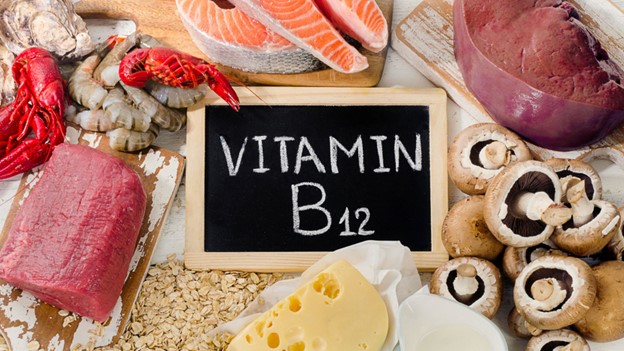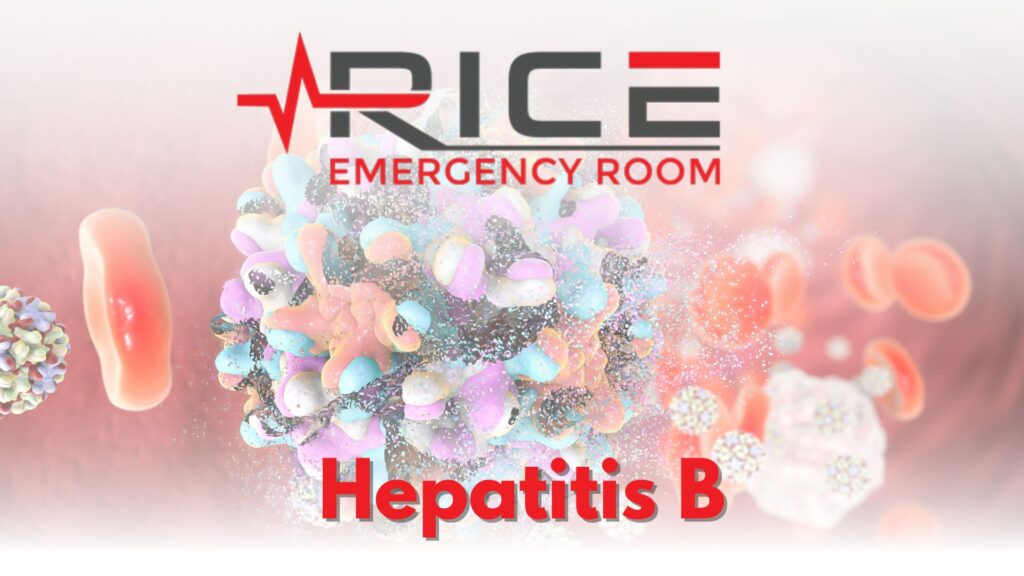
Vitamin B12 is essential to maintaining overall health and well-being, from the functioning of the brain and nervous system to producing red blood cells and DNA. A deficiency in vitamin B12 can lead to various health problems, including anemia, nerve damage, and cognitive decline. Therefore, ensuring you get enough vitamin B12 in your diet is crucial. Let us discuss the numerous health benefits of vitamin B12 and how it can support optimal health.
Why is Vitamin B12 Important?
Adequate intake of vitamin B12 supports several aspects of health, including bone health, energy levels, mood, and possibly the prevention of heart disease. The recommended dietary allowance (RDA) for vitamin B12 is 2.4 micrograms per day for most adults, with higher amounts recommended for pregnant or breastfeeding individuals. Some of the health benefits of Vitamin B12 are listed below:
- Vitamin B12 is crucial in forming red blood cells and preventing megaloblastic anemia. This deficiency can lead to red blood cell production abnormalities.
- Adequate vitamin B12 is essential for maintaining a healthy pregnancy and preventing significant congenital disabilities such as brain and spinal cord abnormalities.
- Research suggests that vitamin B12 may support bone health and reduce the risk of osteoporosis by increasing bone density.
- There is evidence that vitamin B12 may help to prevent brain atrophy and memory loss. Vitamin B12 may also help lower homocysteine levels, which is linked to an increased risk of heart disease.
(Berkheiser)
What Happens When You’re B12 Deficient
Vitamin B12 deficiency anemia is characterized by a lack of healthy red blood cells due to insufficient intake or absorption of vitamin B12 and folate. This can produce abnormal red blood cells that cannot effectively carry oxygen throughout the body, resulting in fatigue, shortness of breath, and dizziness. Supplementation with vitamin B12 and folate can correct these deficiencies. (Mayo Clinic)
Factors Contributing to Vitamin B-12 Deficiencies Include:
- Diet: A lack of vitamin B-12 in the diet, typically found in meat, eggs, and milk, may require the use of supplements or fortified foods such as breakfast cereals and nutritional yeast products.
- Pernicious Anemia: It occurs when the immune system attacks cells in the stomach that produce intrinsic factor, which is necessary for the absorption of vitamin B-12 in the intestines.
- Gastric Surgeries: Surgical removal of parts of the stomach or intestines can decrease the production of intrinsic factor and reduce the space available for the absorption of vitamin B-12.
- Intestinal Problems: Crohn’s disease, celiac disease, and tapeworms can all interfere with the absorption of vitamin B-12.
(Mayo Clinic)
Food Sources of B12 Vitamins
As a necessary nutrient that the body cannot produce on its own, it is vital to obtain vitamin B12 through diet or supplements. Individuals who may be at risk of deficiency, such as vegetarians, and pregnant or nursing individuals, should pay particular attention to their intake of vitamin B12. The following are 12 food sources that are high in vitamin B12 and can be included in the diet:
- Animal-derived Foods: Foods such as meat, fish, poultry, eggs, and dairy products are some of the best sources of vitamin B12.
- Fortified Plant-based Foods: Many plant-based foods, such as breakfast cereals, plant-based kinds of milk, and nutritional yeast, are fortified with vitamin B12. These can be good sources of nutrients for people following a vegan or vegetarian diet.
- Clams: Clams are one of the highest natural sources of vitamin B12, with just 3 ounces providing 3502% of the daily value.
- Mussels: Mussels are another excellent source of vitamin B12, with 3 ounces providing over 850% of the daily value.
- Salmon: Salmon is a good source of vitamin B12, with 3 ounces providing over 147% of the daily value. Other types of fish, such as mackerel, trout, and sardines, are good sources of nutrients.
(Semeco)
In conclusion, vitamin B12 is a vital nutrient that must be obtained through diet or supplements. Vitamin B12 has the potential to improve health in a variety of ways, including reducing the risk of congenital disabilities, promoting bone health, enhancing mood, and supporting healthy skin and hair. It is essential to ensure adequate vitamin B12 through diet. Supplements can also be an effective option for those who have difficulty obtaining enough or have conditions that affect absorption.
The Rice Emergency Room in Houston, Texas is open around the clock, seven days a week, and has a small patient load and a compassionate staff. Whether it’s an adult or a child, our team of highly trained doctors and nurses is ready for you 24/7 to handle any emergency.
Works Cited
Berkheiser, Kaitlyn. “9 Health Benefits of Vitamin B12, Based on Science.” Healthline, Healthline Media, 28 Oct. 2022,
www.healthline.com/nutrition/vitamin-b12-benefits.
Mayo Clinic. “Vitamin Deficiency Anemia.” Mayo Clinic, Mayo Foundation for Medical Education and Research, 18 Jan. 2022,
Semeco, Arlene. “Vitamin B12 Foods: 12 Great Sources.” Healthline, Healthline Media, 20 Jan. 2022, www.healthline.com/nutrition/vitamin-b12-foods.



